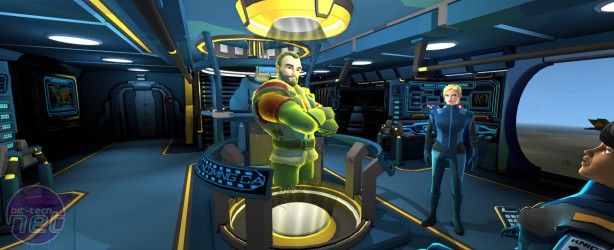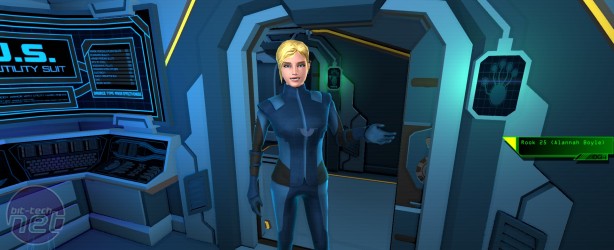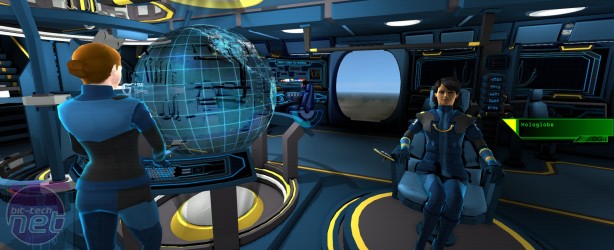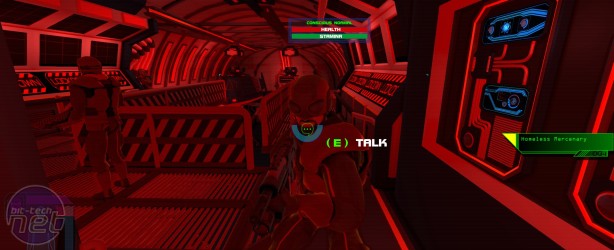
Consortium Review
Price: £14.99Developer: Interdimensional Games Inc
Publisher: Interdimentional Games Inc.
Platform: PC.
Consortium hasn't made a good debut. When it released on Steam a fortnight ago it was so broken we delayed this review because we couldn't get beyond the first hour of the game. The developers Interdimensional Games made their apologies and assured us they were working hard on a patch which would be released within a week. On Saturday said patch was released, and appears to have cleared the game-breaking bugs which had previously hobbled the experience. But was Consortium worth tolerating this delay?
It's complicated. There's a lot more wrong with Consortium than the now-rectified bugs. It is not a great game by any means, and there are moments when it dips into being embarrassingly bad. Yet throughout its relatively short length it is constantly a fascinating experiment in narrative game design, one that convinces you to persevere even when its trousers fall down and it stumbles into a conveniently placed cart of manure.
Consortium casts you as you; sat at your computer playing a computer game. Yes, it is one of those games. The premise is that Interdimensional Games have created a technology through which anyone with the Internet can enter the mind of certain individuals in the future, taking control of their actions and, potentially, changing how that future plays out. Ridiculous, of course, but Consortium plays it out far more convincingly than, say, the Animus sections of Assassin's Creed. Partly this is because it is more than a silly narrative gimmick. The fact that you're not who you appear to be can play into Consortium's plot with various degrees of significance depending upon your dialogue choices.
In this case, the unfortunate flesh-terminal whose brain you hijack is Bishop Six, a soldier assigned to the Zenlil, one of the Consortium's large command aircraft. The Consortium is the world's dominant military and governing force, emerging in the wake of World War III, and you take over Bishop Six just as the Zenlil is flying over an area controlled by a band of mercenaries, at which point things naturally start to go wrong.
The action takes place almost entirely aboard the Zenlil, which you can explore every nook and cranny of in all of ten minutes. But it's the characters you share the ship with, and your interactions with them that make up the bulk of the game. The ways in which you speak to characters, and how you decide to approach the plot's key moments, can define entire swathes of how the story plays out.
This first episode (there are three planned games overall) has you juggling several problems aboard the Zenlil. First off, political tensions bubble over between the Consortium and the band of mercenaries whose territory you're currently flying over. A murder takes place aboard ship, and it's up to you to try to figure out who's responsible. All the while you're trying to blend in as Bishop Six, and conceal your true identity.
Conceptually, this idea of telling the story in a small area where events can play out in many different ways is very appealing, and the breadth of the narrative is impressive. For example, at one point a band of mercenaries boards the plane. You can deal with this assault by simply killing everyone, but it's also possible to resolve the situation without firing a single shot. Similarly, dealing with the murderer has an equally broad range of solutions.

MSI MPG Velox 100R Chassis Review
October 14 2021 | 15:04













Want to comment? Please log in.